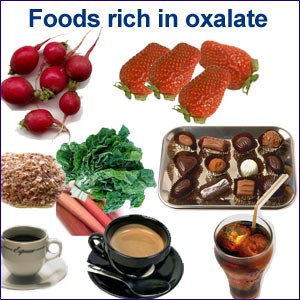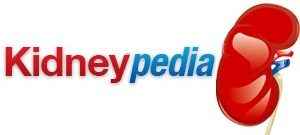
Preventing kidney stones is a matter of addressing the factors that cause kidney stones in the first place. Causes and preventive measures for kidney stones include the following.
Water
The most common single cause of kidney stones is dehydration. Dehydration causes the blood to have heavier concentration of minerals, and it also causes the body to reduce the water content of urine (or increase the dissolved solid content of urine) as a way to conserve water in the body. Urine can become supersaturated under those conditions and kidney stones can precipitate, sometimes becoming lodged in the urinary system and causing intense pain, blocked urination, and damage to the kidneys or to other parts of the urinary system. The way to prevent this happening is to be sure of proper hydration. That includes drinking plenty of liquids. Two quarts a day or more of water or other liquids (three quarts is not excessive) increases the volume of urine and reduces the concentration of dissolved solids.
A person on this kind of liquid intake regimen should find the amount of urine generated by the body, resulting in more copious and frequent urination. Drinking plenty of water can reduce recurrence of kidney stones by up to 90 percent.
Calcium Oxalate
The most common kind of kidney stone is formed from calcium oxalate. Cutting back on foods high in calcium oxalate has in the past been recommended as a good preventative for kidney stones for that reason. Today, however, this is questioned. Foods that are high in calcium oxalate include: apples, grapes, berries, oranges and other citrus fruits, pineapple, figs, cheese, milk, yogurt and dairy products generally, spinach, asparagus, chard, rhubarb, beets, turnips, collards, broccoli, chocolate, cocoa, tea, cola, coffee, peanuts and peanut butter.
Taking calcium supplements can of course also increase your intake of calcium oxalate. As calcium is a necessary nutrient, it’s important to consult with your doctor before significantly reducing calcium intake. All of the above foods can be eaten in moderation without increasing the risk of kidney stones under most circumstances.
Some studies actually suggest that dietary calcium from food is a help in preventing kidney stones, contrary to common sense. This is because a diet high in natural calcium seems to block a chemical reaction that leads to formation of kidney stones. Food calcium binds with oxalates in the intestines, which prevents the mineral from being precipitated in the urine as kidney stones. The oxalate portion of calcium oxalate may be more important in the formation of kidney stones in urine than the calcium part.
Magnesium
In contrast to calcium, magnesium is definitely something you want to eat more of to prevent kidney stones. Magnesium, like calcium, binds with oxalate, and oxalate that has bound with magnesium isn’t available to bind with calcium. Magnesium is also a necessary mineral nutrient important in hundreds of bodily processes. Foods rich in magnesium include green leafy vegetables, especially those that are dark
green like spinach, and also certain beans, nuts, and seeds (such as pumpkin seeds and sesame seeds).
Other Dietary Measures
Other dietary steps that can reduce kidney stones include cutting back on sugar (including fructose as well as table sugar), reducing protein intake, and reducing sodium (especially by reducing salt). Getting plenty of exercise also helps, partly by stimulating circulation, and partly by encouraging drinking plenty of water. Lack of exercise also encourages your bones to release more calcium, while exercise sends a message to your body that bones need to be kept solid and strong to resist injury.
